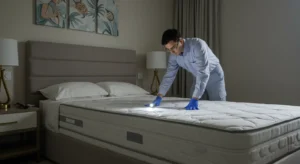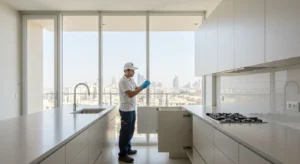In the busy food industry of the UAE, keeping food safe isn’t just a good idea—it’s the law. Beyond keeping things clean and handling food correctly, having a strong pest control plan is a must. Pests are a big problem because they can contaminate food, spread diseases, ruin a company’s reputation, and get you in trouble with the law. For any food business, restaurant, or manufacturer in the UAE, understanding and using effective pest control is a must to stay compliant and succeed.
1. Protecting People's Health: The Hidden Danger of Pests
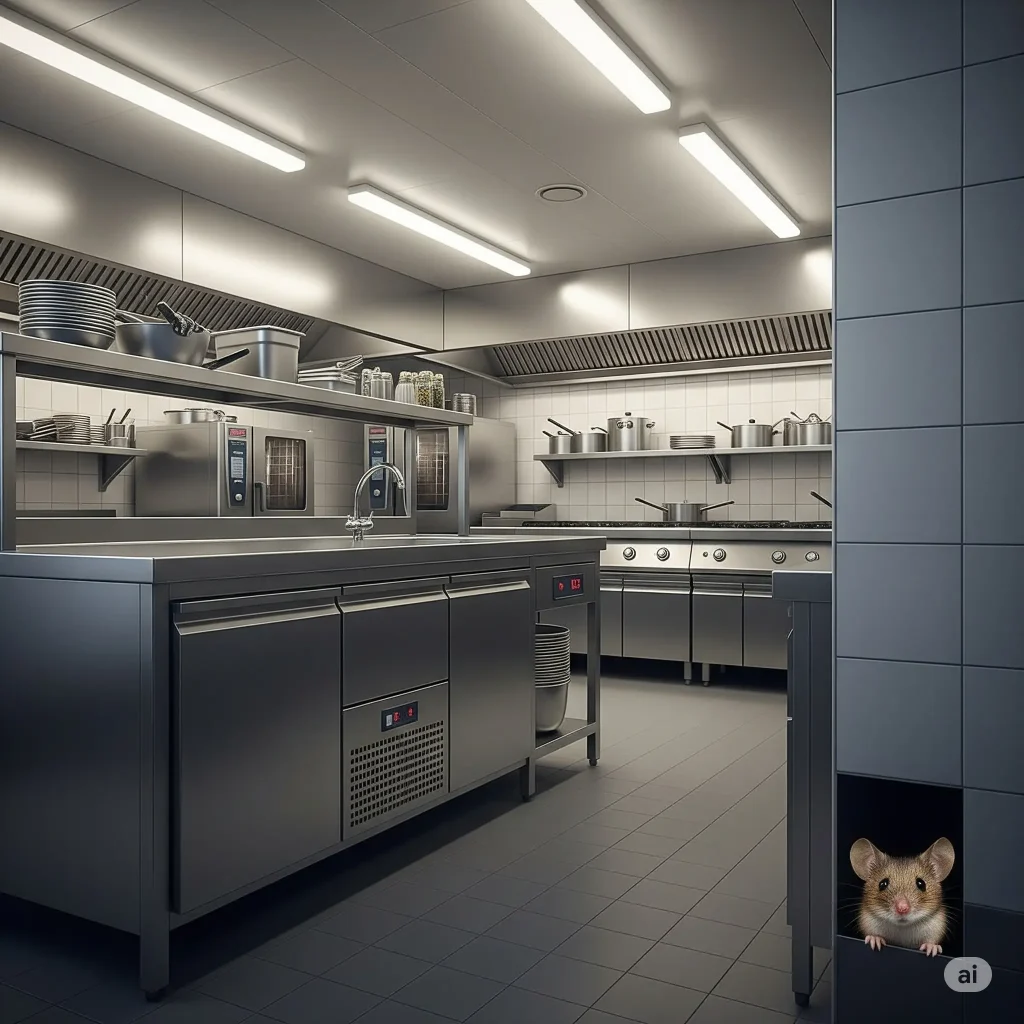
Pests like rats, cockroaches, and flies aren’t just annoying; they carry dangerous germs. Just one pest in a kitchen can contaminate surfaces, equipment, and all the food with bacteria and viruses.
- Rats spread diseases like Salmonella through their droppings and pee, and they can also chew through packaging and ruin products.
- Cockroaches love warm, wet places and can spread bacteria that cause food poisoning. They can also trigger allergies.
- Flies move germs from dirty places to your food, helping to spread diseases like cholera.
Any pest problem, big or small, puts a serious biological risk into the food supply, directly endangering the health of your customers and staff.
2. Following the Rules: Avoiding Fines and Closures
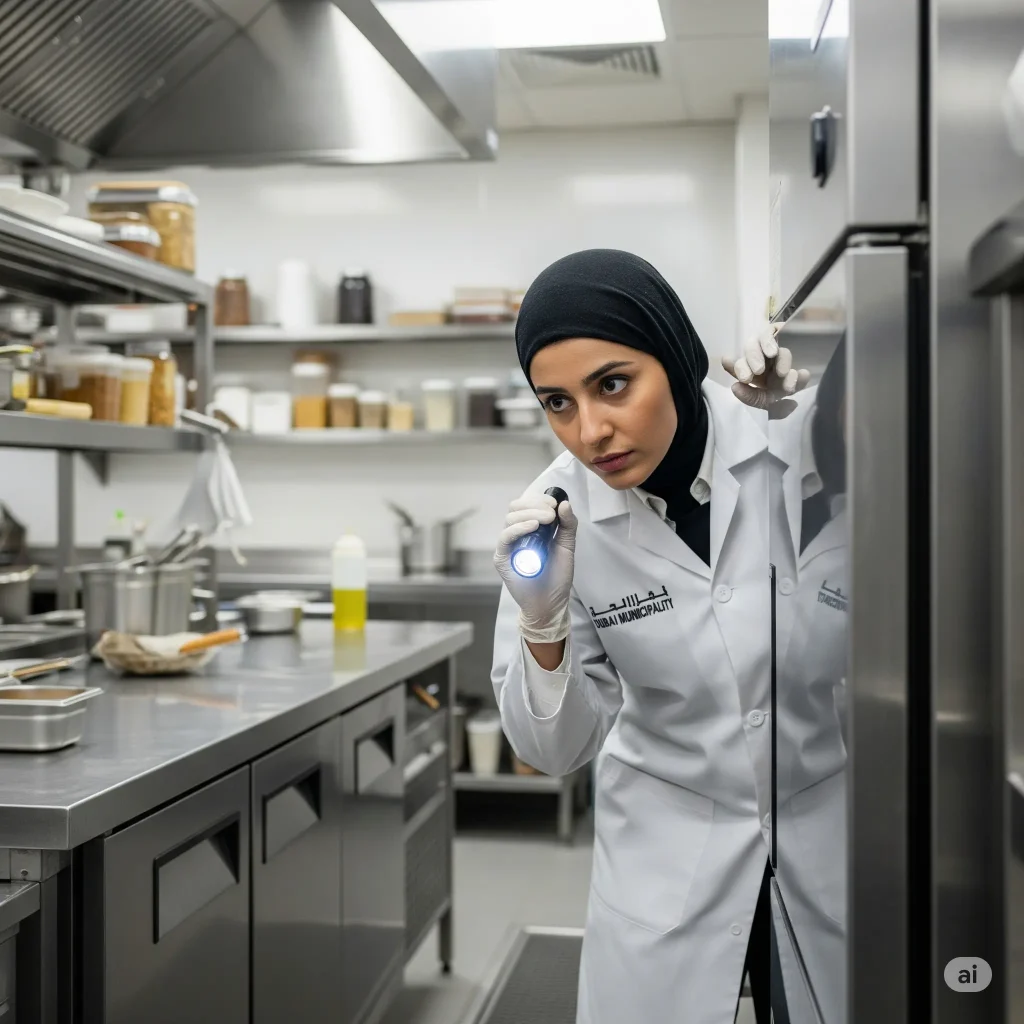
The UAE has strict food safety laws enforced by groups like the Ministry of Climate Change and Environment (MOCCAE) and local municipalities such as Dubai Municipality. These rules require food businesses to keep their premises free of pests as part of their compliance.
Just seeing one pest can lead to:
- Big fines
- Temporary or permanent business closure
- Losing your license to operate
Also, pest control is a key part of the Hazard Analysis and Critical Control Points (HACCP) system, which is a worldwide standard for managing food safety risks. Businesses must have documented pest management programs to show they are serious about controlling risks and passing inspections. Regular checks and keeping good records are essential to prove you are following the rules.
3. Saving Your Reputation and Money
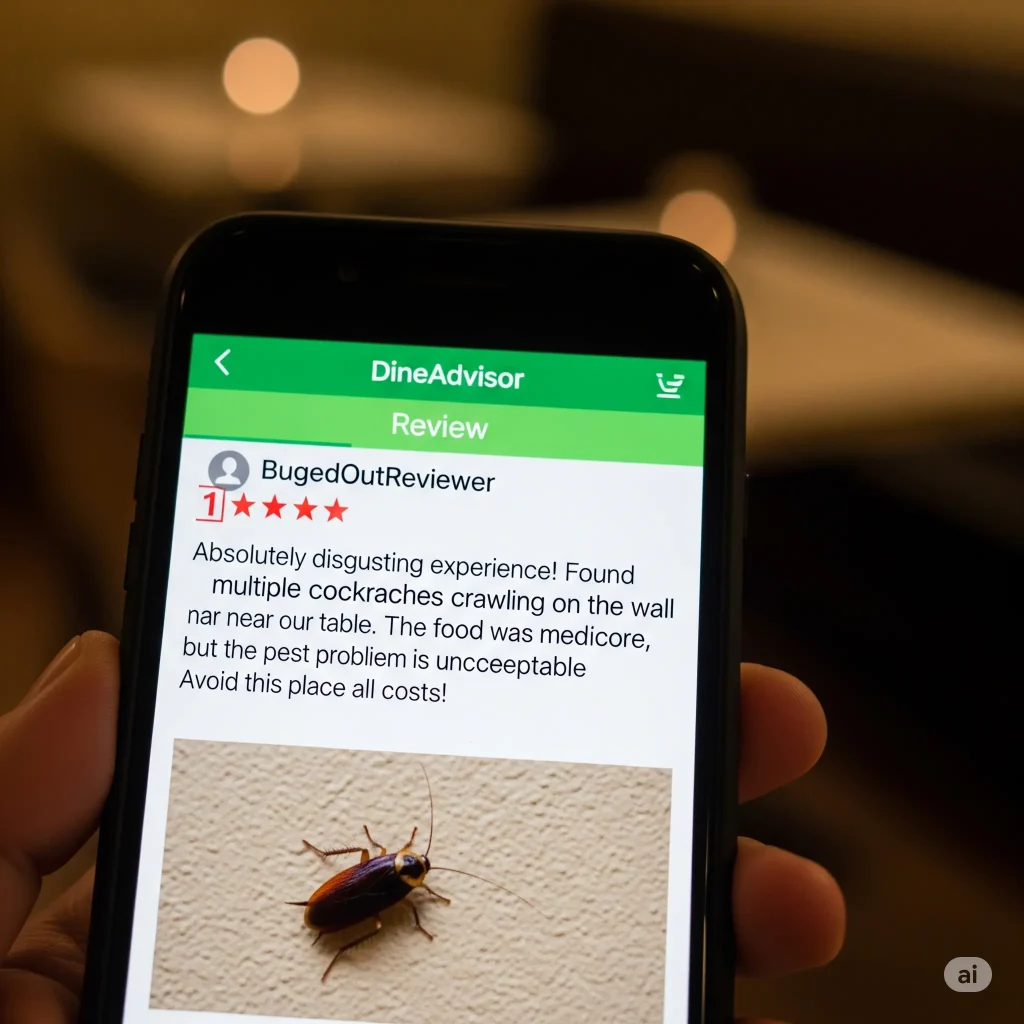
Your company’s reputation is its most important asset, and a pest problem can ruin it instantly. Bad reviews, customer complaints, and social media posts about pests can cause a quick drop in customer trust and a loss of sales. In the very competitive UAE market, this kind of damage to your reputation can be hard to fix.
Besides your reputation, pests can cause major money problems by:
- Contaminating and spoiling your food inventory, which leads to waste.
- Damaging electrical wires, insulation, and the building itself.
- Causing business interruptions and product recalls.
Paying for a good pest control plan is much cheaper than dealing with the aftermath of a pest problem.
4. The Solution: Using an Integrated Pest Management (IPM) Program
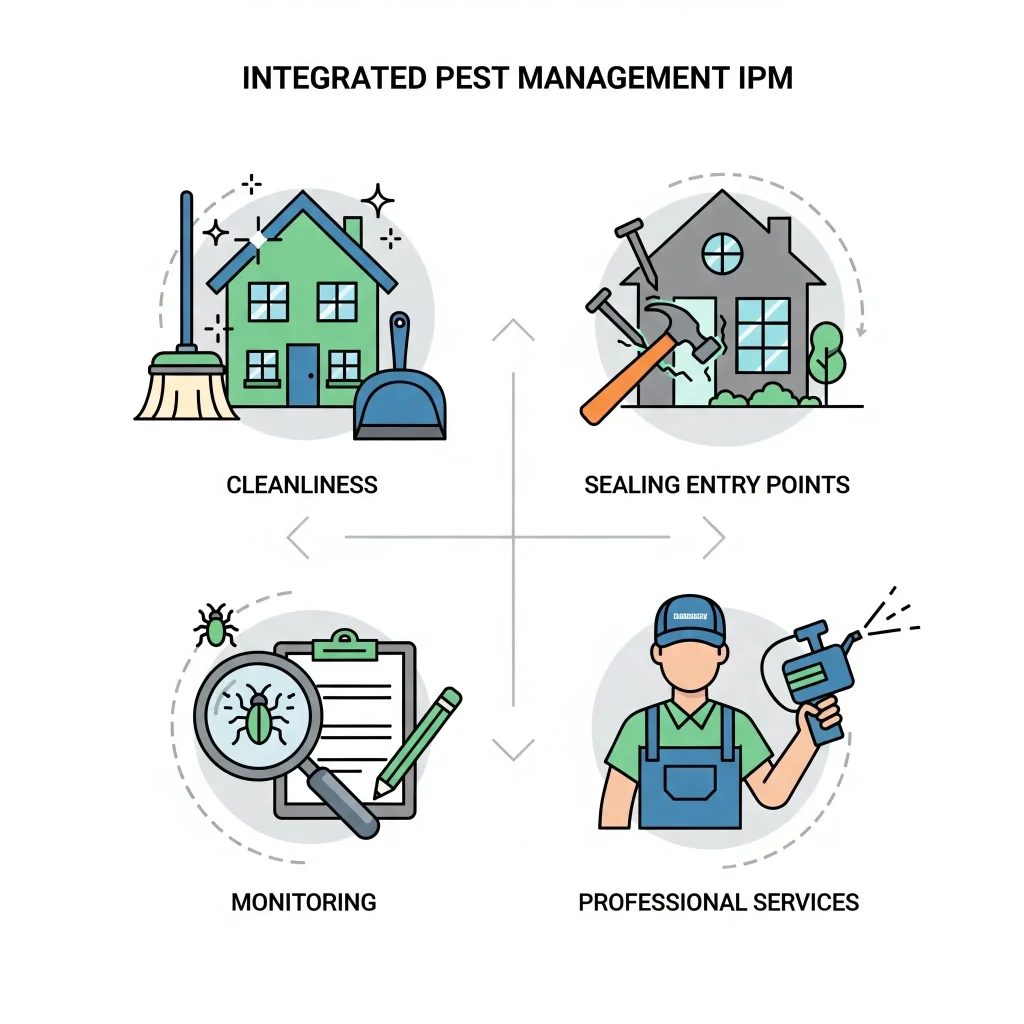
Good pest control is more than just spraying chemicals. The best approach is an Integrated Pest Management (IPM) program, which focuses on long-term prevention. The main parts of an IPM program are:
- Cleanliness: Keeping all food preparation, storage, and dining areas very clean. This includes getting rid of trash properly and cleaning up spills right away.
- Keeping Them Out: Sealing all possible entry points, like cracks in walls, gaps around doors and windows, and holes around pipes.
- Checking: Doing regular checks to find signs of pest activity early, using traps and monitors.
- Professional Help: Working with a licensed and experienced pest control company. These experts have the knowledge and tools to identify the specific pests in the UAE, create a custom treatment plan, and use safe, eco-friendly methods that follow local laws.
By making a comprehensive pest control plan a priority, food businesses in the UAE can not only meet the legal requirements but also protect their customers, their brand, and their profits, ensuring a safe and successful operation for years to come.

